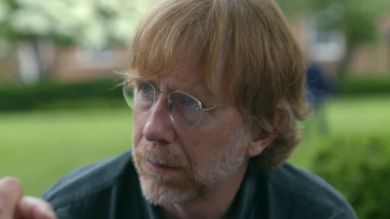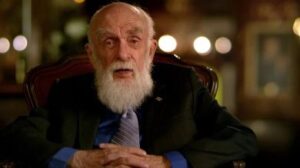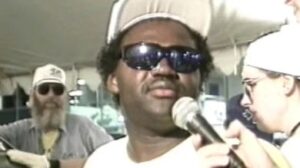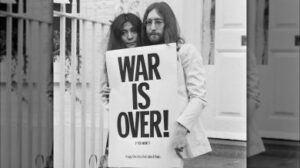For a very long time, filmmakers who want to tell captivating non-fiction stories have used documentaries as their medium. Documentaries have recently migrated from the back room to the front and are growing in popularity, largely in sync with the growth of home video and streaming. In fact, there are a lot of documentaries in the catalogues of the main streaming providers, like Netflix, Hulu, and Amazon Video.
Nowadays, documentaries are available that cover a wide range of topics, from in-depth investigations of the physical and natural sciences to historical dramas that follow the history of ancient mysteries that were long lost before they were rediscovered. While documentaries like “Tiger King” and “Britney vs. Spears” are surely well-known to us all, there are many other excellent films that have not received nearly as much attention.
This list focuses on documentaries that may not be as well-known as those up top but nonetheless tell tales that are incredibly engaging and valuable. You should watch these underappreciated documentaries.
1913: Seeds of Conflict
In collaboration with PBS, award-winning filmmaker Ben Loeterman produced the documentary “1913: Seeds of Conflict.” It investigates the causes of the Israeli-Palestinian conflict in the years preceding World War One. Modern-day Israel and Palestine were governed and controlled by the Ottoman Empire in 1913, which permitted Jewish immigrants to start settling in different areas of the country. This sparked a confrontation between Jewish nationalism, sometimes known as Zionism, and Arab nationalism, which served as the inspiration for the movie.
The documentary features professors and researchers from all around the world, including Israel and Palestine, and draws on the work of many top authorities on the history of the conflict. “1913: Seeds of Conflict” is a very instructive documentary that presents a riveting — and extremely political relevant — story for anyone interested in the history of the conflict, even though it hasn’t received much recognition outside of the PBS realm.
André the Giant
The 2018 HBO documentary “André the Giant” delves into the realm of professional wrestling to examine the former wrestler and his brief but famous career. The movie chronicles André’s entire life, beginning with his childhood in France, continuing through his career in wrestling, and then coming to a devastating conclusion with his premature death at the age of 46. Although André is portrayed by his peers and family as a larger-than-life figure, his severe health and emotional challenges are also documented. Despite the fact that his enormous size made him a major draw for wrestling, this was caused by a disorder called acromegaly.
Hulk Hogan, Jerry Lawler, Ric Flair, and other former wrestlers that worked with André as well as his former employer Vince McMahon all provided in-depth interviews for the movie. His well-known performance in “The Princess Bride” is also covered, and some of his co-stars in the movie participated in the documentary by giving interviews.
With a 91% audience rating on Rotten Tomatoes, “André the Giant” is a highly personal and moving look at the former wrestler. It’s still a really intriguing documentary to see even if you’re not a fan of wrestling.
An Honest Liar
James “The Amazing” Randi’s life is the subject of the 2014 film “An Honest Liar.” Randi, who was born in 1928, rose to fame as one of the greatest magicians and escape artists in history before becoming a well-known scientific sceptic and disprover of paranormal claims. The second half of Randi’s career, when he publicly exposed other magicians and celebrities who claimed to have psychic or other paranormal talents, is mostly the subject of the movie.
Along with other famous magicians and sceptics who were affected by Randi during his career, the movie also features a profile of Randi’s lifelong boyfriend José Alvarez. The roster of interviews also includes Bill Nye, Adam Savage, Penn and Teller, and Alice Cooper, who previously hired Randi for his 1973 tour, when he memorably impersonated his own decapitation on stage.
“An Honest Liar” is well regarded by reviewers and viewers despite its modest box office success. With a 98% critics score and an 88% audience score, Rotten Tomatoes declares it to be “Certified Fresh.” You will adore “An Honest Liar” if you embrace scientific skepticism, we promise.
Between Me and My Mind
Trey Anastasio, a musician and frontman for Phish, is the subject of the 2019 documentary “Between Me and My Mind,” which offers a close-up look at his life and work. Anastasio is prepping for forthcoming Phish shows and writing a new album named “Ghosts of the Forest” throughout the documentary’s 2017–2018 filming period. Anastasio and Phish are followed as they get ready for two appearances at Madison Square Garden—one in the summer of 2017 and the other during the 2018 New Year’s Eve event.
Anastasio spends a significant portion of the movie discussing his previous job with acquaintances and members of his family, including his wife and two daughters. The film also addresses his friend Chris “C-Cott” Cottrell’s tragic death from cancer. Anastasio has given a tonne of live performances, both solo and with Phish, and he put on amazing stage shows when they played at Madison Square Garden for New Year’s Eve from 2017 to 2018.
With more than 100 audience reviews, “Between Me and My Mind” presently has a 100% audience score on Rotten Tomatoes. It is definitely worth seeing — or watching twice. It is a profoundly informative and fascinating look at one of rock’s most inventive and creative songwriters.
Comedian
One of the underappreciated jewels of the documentary genre is the 2002 film “Comedian.” The movie primarily follows two stand-up comedians as they negotiate the evolving stand-up comedy industry: veteran Jerry Seinfeld and rising star Orny Adams. Seinfeld is now working on a whole new stand-up performance with all new material to complement his wildly popular TV show and just shown HBO special. Adams is travelling around to pick the brains of experts whenever he can in an effort to learn what it takes to succeed as a professional comic.
Legendary comics like Chris Rock, Colin Quinn, Jim Norton, and Greg Giraldo are some other comedians who either give interviews or are featured performing standup. It provides a very empathetic view of the stand-up comedy business by highlighting the tremendous strain and demands that performers have to consistently provide top-notch material for a wide range of audiences.
As Decider notes, even though it didn’t receive any accolades when it was first released, it had a significant impact on many young comics who watched it and afterwards tried their hand at stand-up comedy. The comedy film “Comedian,” which debuted in 2002, is still current and entertaining today.
Hands on a Hardbody
The 1997 documentary “Hands on a Hardbody” is one of the more obscure selections on our list. The 1995 “Hands on a Hardbody” competition was being conducted in a Nissan dealership in Longview, Texas, and was being directed and produced by S.R. Bindler. There are 24 participants in the game, and the person who can maintain their hand on a “hardbody” pickup truck for the longest wins the truck.
The movie goes into the pasts of several of the contestants and ponders the motivations behind their participation in addition to simply covering the tournament. The truck serves as a stepping stone for many of them living in Longview’s struggling economy toward a new employment and perhaps even a much better life. Many of them have previously competed in the competition, including one previous champion who returns to attempt and win again, much to the dismay of the other competitors. At one point, after allegations of unfair judging and cheating, tensions begin to flare, but for the most part, the competition is kept amicable.
The documentary, which presently has a Rotten Tomatoes audience rating of 92%, was turned into a Broadway musical in 2013 with music composed by Trey Anastasio of Phish and Amanda Green. The documentary is a fun blend of drama and comedy that is definitely worth seeing.
Hearts and Minds
“Hearts and Minds,” one of the most significant documentaries about the Vietnam War, was released by Peter Davis in 1974. “Hearts and Minds” was produced during the conflict and released between the signing of the Paris Peace Accords in 1973 and the Fall of Saigon in 1975, while there were still tens of thousands of American service members stationed in Vietnam. Interviews with numerous Vietnam veterans who had recently returned to their homes as well as numerous Vietnamese civilians who had experienced the conflict in both North and South Vietnam are featured in the video, which examines the war from a variety of angles.
An interview with General William Westmoreland, a former leader of American forces in Vietnam, is among the movie’s most moving scenes. In the movie, scenes from Vietnamese funerals with bereaved family members are intercut with Westmoreland’s cruel remarks on how Vietnamese people did not value life as highly as Americans. When it was first released, the movie was hugely successful and won the 1975 Oscar for best documentary.
According to NPR, “Hearts and Minds” was included in the National Film Registry in 2018. Despite being produced many years ago, the documentary “Hearts and Minds” is still quite current. Even though it may not currently attract as much attention, it is still well worth watching.
Jesus Camp
The 2006 documentary “Jesus Camp,” which is among the most contentious on our list, follows Pentecostal children’s minister Becky Fischer as she oversees the old “Kids on Fire” evangelical Christian camp. The camp brings in children from all over the nation to hear from various ministers and presenters on evangelicalism. Attendees study the principles of evangelical Christianity and how to apply them to their lives while participating in worship sessions and watching a variety of religious films.
The way the documentary portrays the camp, though, is what makes it contentious. Many believed that the movie depicted the camp as a sort of indoctrination where adults use the Bible to spread anti-science and conservative political ideologies. The appointment and confirmation of Supreme Court Justice Samuel Alito, who the movie contends was at least partially nominated for the bench because of his religious convictions, are interspersed with the story of the camp.
After the documentary’s release, Fischer closed her camp due to harsh criticism of the ways she was depicted in the movie. The documentary “Jesus Camp” is wonderful and engaging, even though it hasn’t received as much attention lately. On Rotten Tomatoes, it received an 87% rating from critics, earning the designation “Certified Fresh.”
Korengal
Though “Restrepo,” which was nominated for an Academy Award in 2011, is well known, its 2014 follow-up, “Korengal,” is less well known. The majority of “Korengal” was shot in the Korengal Valley, Afghanistan, where the Second Platoon, Battle Company, 2nd Battalion, 503rd Infantry Regiment, 173rd Airborne Brigade Combat Team of the U.S. Army was stationed. “Korengal” is set immediately after the events of “Restrepo.” The majority of the soldiers are the same from the first movie, which was also produced by the same crew.
The movie, whose title comes from the Korengal Valley where the soldiers are stationed, examines their daily lives and features both combat video and soldier interviews. The troops’ discussions of the psychological and emotional toll the war has taken on them and their loved ones back home make for tremendously fascinating conversations.
“Korengal” has an 87% critical approval rating on Rotten Tomatoes, and although not receiving the same praise as its predecessor, it is nonetheless a fascinating and important work of art.
Metal: A Headbanger’s Journey
The 2006 documentary “Metal: A Headbanger’s Journey” is all about heavy metal music, as you can undoubtedly infer from the title. Sam Dunn, a lifelong metalhead and professional anthropologist, wrote, directed, and produced the movie. His intention with the movie is to examine heavy metal music through an anthropological lens while researching the sociological and cultural traits of the metalhead subculture. The documentary follows the development of metal until the early 2000s by first examining some of the first heavy metal bands from the 1970s, such as Black Sabbath.
Dunn speaks with several different metal musicians for the documentary, including giants like Ronnie James Dio, Tony Iommi, and Bruce Dickinson. The way he approaches the subject of metal in the movie—from an anthropological standpoint—comes across quite effectively and allows Dunn to delve deeply into the complex web of metal subgenres and esoteric subcultures. When Dunn explores the links between Norwegian artists who play extreme black metal and a string of church burnings they perpetrated in the early 1990s, it’s one of the documentary’s most fascinating sections.
A 2007 Gemini award for “Best Writing in a Documentary Program or Series” went to “Metal: A Headbanger’s Journey,” yet it has mostly gone unnoticed by the general public. On Rotten Tomatoes, it does, however, earn a 90% critics score and a 91% audience score, indicating that it was a huge hit with viewers who have watched it. It’s definitely something you should check out if you enjoy heavy metal.
Religulous
In his rather divisive 2008 film “Religulous,” Bill Maher explores his attitudes toward the three major world faiths of Judaism, Christianity, and Islam. Maher’s central thesis is that he does not comprehend people’s occasionally fanatical dedication to religious teachings and that he is interested in learning more about adherents of various religions and the reasons behind their continued practice. Some of his subjects react hostilely to his lightheartedness and sarcastic scepticism because they don’t like him challenging their beliefs.
For his documentary, Maher travels to several holy places in the Middle East as well as other parts of the globe. He spends time speaking with religious leaders from all three of the Abrahamic faiths and asking them about the role of religion in contemporary society. Larry Charles, known for helming the Sacha Baron Cohen movies “Borat,” “Bruno,” and “The Dictator,” is the film’s director.
Based on more than 25,000 views, “Religulous,” a combination of the words religious and ludicrous, gets a 78% audience rating on Rotten Tomatoes. It has Maher at his best and takes a humorous and even sarcastic look at religion today.
Stop At Nothing: The Lance Armstrong Story
“Stop At Nothing: The Lance Armstrong Story,” a documentary by Alex Holmes that was first released in 2014, examines the doping allegations that surrounded the ascent and fall of now disgraced former Tour de France cycling champion Lance Armstrong. Armstrong’s entire career is covered in the documentary, starting with his early victories in cycling competitions in the 1990s. In order to win seven straight Tour de France events, Armstrong used a variety of performance-enhancing medications and blood doping, as seen in the documentary. Holmes demonstrates Armstrong’s deception as well as the various ways in which he persuaded almost everyone in his vicinity to take part or remain silent.
“Stop At Nothing” was greatly overshadowed when it was first published in 2014 by Alex Gibney’s documentary, “The Armstrong Lie,” which had been made the year before. “Stop At Nothing” has an audience score of 87% on Rotten Tomatoes, which is greater than Gibney’s movie but is still a very engaging documentary. It features interviews with several of Armstrong’s friends, former teammates, and others who he disparaged for speaking out against him. You absolutely must watch “Stop At Nothing,” especially if you love sports.
The U.S. vs. John Lennon
The U.S. vs. John Lennon, a contemporary documentary about John Lennon and his wife Yoko Ono’s issues with American immigration authorities in the 1970s, was published in 2006 by David Leaf and John Scheinfeld. The movie looks at how John Lennon transitioned from being The Beatles’ adorable mop-top to a vocal and outspoken opponent of American foreign policy during the Vietnam War. The film specifically examines the Nixon administration’s extensive efforts to deport Lennon and Yoko Ono to England due to their anti-war stances.
A number of Lennon’s contemporaries, including Yoko Ono, the couple’s immigration attorney Leon Wildes, well-known journalists like Carl Bernstein, and various officials from Nixon’s government are interviewed for the documentary. Lennon’s immigration case, which he is defending from New York City, and the arrest and conviction of anti-war activist John Sinclair, who was given a 10-year prison term for selling two joints of marijuana to an undercover police officer, are two of the major plotlines.
Lennon took part in a sizable demonstration in support of Sinclair, who is profiled in the movie, in an effort to secure his release from custody. On Rotten Tomatoes, “The U.S. vs. John Lennon” has an audience approval rating of 81%. Critics laud the documentary’s soundtrack and its ability to honestly and accurately depict Lennon.
The Wild and Wonderful Whites of West Virginia
The 2009 documentary “The Wild and Wonderful Whites of West Virginia” is one of the most enjoyable but underappreciated films ever made. The “Jackass” stars Johnny Knoxville and Jeff Tremaine produced the documentary, which features the White family of Boone County, West Virginia. The Whites are a poor family who depend heavily on criminal enterprises and government aid to survive. They reside in a devastated economic area.
As evidenced by numerous family members engaged in excessive drug usage and drug dealing, the family also battles alcohol and drug addiction. When it was revealed that one of the family members’ newborn kid was born with illegal narcotics in her system, the child was taken away by child protection services. D. Ray White, the family patriarch, temporarily achieved mountain dancer celebrity in the early 1990s, and Jesco White, who is depicted above with Johnny Knoxville, also achieved dancer popularity as “The Dancing Outlaw.”
While the family’s difficulties are noteworthy, the movie also focuses on their strong bonds and unwavering loyalty. It is undoubtedly a distinctive view of Boone County, West Virginia, but it is also one that will stick in your memory.
There is assistance available if you or someone you know needs it for addiction-related problems. Visit the Substance Abuse and Mental Health Services Administration website or call 1-800-662-HELP for information about SAMHSA.















